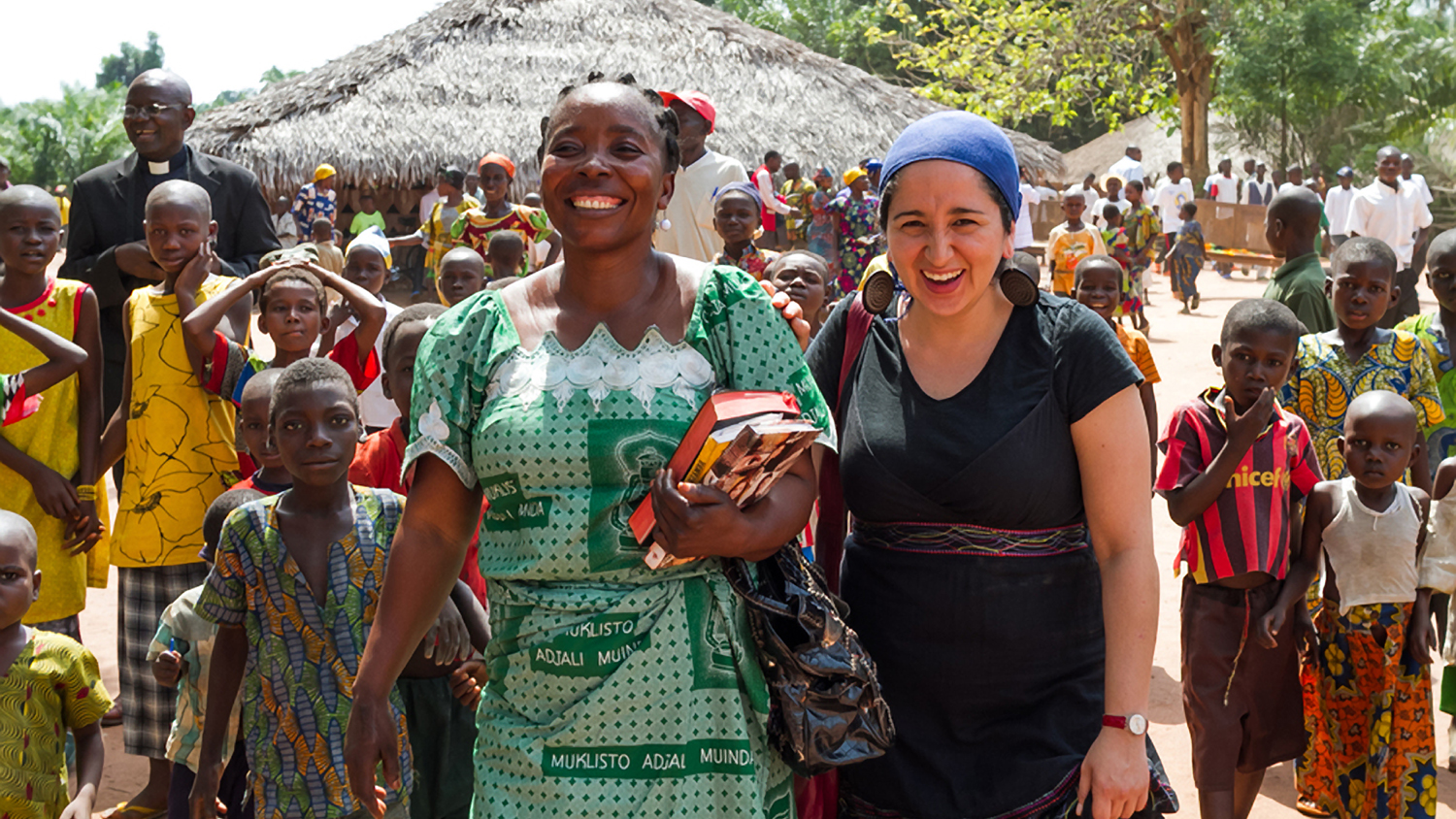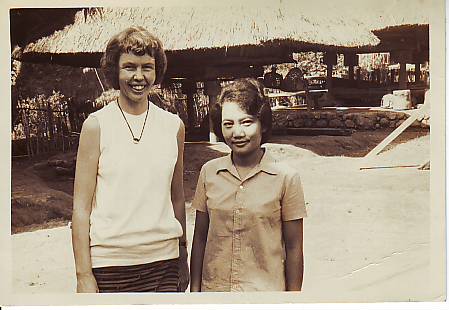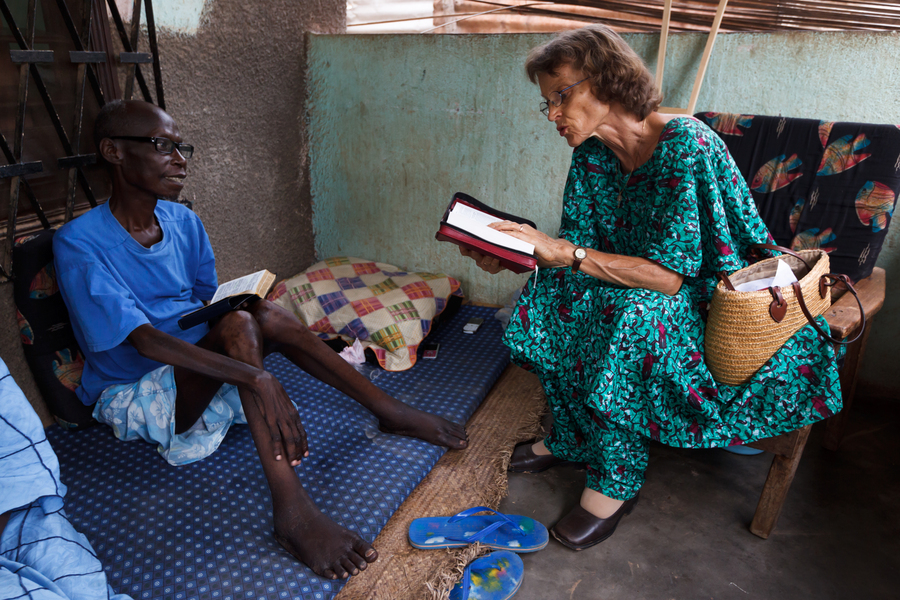“Is God not with us just as much as with a man?”
When women in the 1930s and ’40s challenged the church’s hesitancy to send female missionaries into remote areas, the early leadership of what would eventually become Wycliffe Bible Translators couldn’t argue against them.
So began generations of women learning far-away tongues, recounting Bible stories, and bringing New Testaments into new languages. Over the past several decades, unmarried women in particular have dedicated their lives to Bible translation.
“If it hadn’t been for single women over the 70-year history of Wycliffe, half of the translations wouldn’t have been completed,” according to chief operations officer Russ Hersman.
That legacy has positioned female translators to accelerate today’s global translation efforts, address the literacy gap, and empower Christian women in oral-dominated cultures.
Retired translator Anne West has a cross-stitch of Philippians 1:6 hanging in her California home: “He who began a good work in you will carry it on to completion until the day of Christ Jesus.”
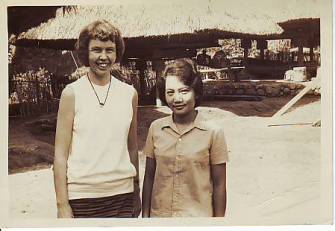 Anne West
Anne West“It’s true no matter what situation,” the 82-year-old said. “If God has sent you, he comes alongside you.”
God sent West to the Philippines in the early 1960s. She spent half her life there, working on projects to translate the Bible into local languages and dialects, like Ifugao, a regional language spoken by 130,000 people. Her parents encouraged her, Christian families welcomed her, and she trusted God’s calling from the beginning.
As a single woman, she served in the Southeast Asian country for 47 years before moving back to the United States. She married last month for the first time; her husband is a widower she met at church.
While overseas, loneliness was West’s greatest struggle, but she trusted God’s purpose. “If I were married I couldn’t be doing what I was doing,” said West. “I never felt that I always wanted to be single, but I knew I wouldn’t be able to do it if I had a family to answer to first.”
Her testimony follows women like Florence Hansen and Eunice Pike, the first single female translators to train with Wycliffe’s predecessor program back in 1936. In Mexico, the pair completed the first New Testament translation in an indigenous language, working in a village where no missionaries had served before. Their example quickly reshaped the field. Within a decade, the program integrated male and female training and did away with mentions of gender. By 1944, two-thirds of the linguists working in Mexico were women.
Now, women make up 85 percent of Wycliffe’s translation force.
“I’ve often wondered, ‘Are women more open to God’s call on their life with regard to foreign missions?” said COO Hersman.
The discrepancy between single men and single women in the mission field has prompted many in the church to ask the same question. When John Piper addressed the single missionary gap on his podcast last year, he cited that 80–85 percent of single missionaries are women.
“Many think that the technical domain of Bible translation is male-dominated. For SIL, however, it is a field in which highly skilled and capable women are significantly represented,” said Tammy Schutt, who coordinated a study on woman’s advancement for the linguist training program back in 2013. "Women interviewed during the study expressed that they feel on par with the men in their fields, and they feel respected. A lot of that is because they’ve proven themselves.”
Though women in Bible translation are well represented in the field, they remain underrepresented in leadership positions. In recent years, SIL has worked to bring more women into administrative leadership, believing that “God works through women and men of every ethnic group and age level, and calls them to be involved in leadership roles in all facets of our organizational life.”
Women mostly feel free to focus on the work they were called to in the first place—getting more people access to the Bible in their own languages—but the pressure’s still there. Everyone on the mission field works hard and sacrifices much; women may notice themselves working extra hard to demonstrate their contributions.
“At times I have felt the weight of being the proverbial poster child representing all African American females,” said Jacqueline Huggins, the second-ever African American and first African American woman to complete a Bible translation.
When she began over 30 years ago, “I felt that whatever I did would paint a picture of all African American females, so I became a perfectionist,” said Huggins, a dictionary consultant-in-training with SIL. “I worked harder and longer than my colleagues, many of whom were still left with the impression of the Black Power movement, race riots, and what they understood as uneducated angry black people.”
Whether single or married, women like Huggins play a unique role in Bible translation in particular. While sensitive to avoid over-generalizations or stereotypes, both men and women involved in translation spoke to the benefits of women’s softer skills and gifts, like relationship-building, emotional intelligence, and communication.
“I have heard it said that women tend to make better translators, as they have more connections in the brain between the left and right sides, which makes for more creativity,” said Sue Pearson, an associate global translation coordinator for Wycliffe.
In the Journal of Neuroscience, researchers found that because of this greater interactivity between the brain hemispheres, women have an advantage over men when performing certain linguistic tasks. This ability comes into play in phonology—how people analyze the patterns of sound in human speech.
Additional studies showed younger girls more readily perceive language in the abstract, regardless of visual or auditory cues for a particular word.
Pearson and her husband, Dave, have spent over 30 years working with SIL in Chad, Kenya, and East Africa. She described one of her mentors, Katharine Barnwell, who developed a course for translators that’s now used throughout the organization. “Her gentle kindness, her impressive knowledge, and her deep spirituality” make Barnwell, who has served in this discipline for more than 54 years, another pioneer in the field.
Even if women prove themselves to their leaders and their colleagues, their most important relationships are those they cultivate in the communities where they serve; without them, they cannot learn the linguistic and cultural distinctives necessary to communicate Bible stories in contextually meaningful ways.
Female translators may run into restrictions in patriarchal villages, but sometimes such structures actually offer women unique access. Hersman recalled an area where Wycliffe had been concerned about whether the female translators there would be accepted by community leaders. “We were told later on that if these had been men, they would have killed them,” he said. The women were able to make inroads because “they’re seen as non-threatening.”
The work of Bible translation also serves local women in particular, equipping them to serve as translators and to receive translations in their “heart language,” now seen as the most effective means for communicating transformative biblical truths.
“Thinking of national women, it is always harder for them as there are often cultural constraints and greater family pressures, although this too is changing,” said Pearson, with SIL. “There is now a greater number of female national translators,” particularly older women with grown children.
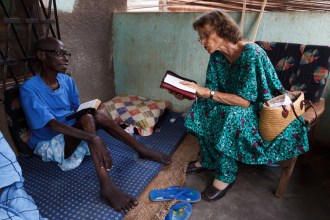 Wycliffe
WycliffeGlobally, women are twice as likely as men to reach age 15 without being able to read or write, according to the United Nations. Their illiteracy is linked with worse health and financial outcomes for their families.
In rural areas, women are less likely than men to know the country’s more popular trade or market language. Mother tongue translation—designed to offer resources in a person’s first or native language—may be their only way to access Scripture on their own. Alongside their translation work, Christians in places like Peru, Senegal, and Papua New Guinea have launched projects to improve women’s literacy.
“Women are often the numerical majority in these congregations, but they often have no voice,” said Larry Jones, senior vice president of Bible translation at the Seed Company, a partner organization with the goal of reaching 1 billion people in the next decade.
Through the Esther Project—first launched in India and Ethiopia—the Seed Company trains local women in oral Bible storytelling. Through workshops, an initial team of a couple dozen grows to 500, and they memorize dozens of Bible stories to share in person and through SD card recordings played on cell phones.
“The community perception of those women has changed profoundly,” said Jones. “In the non-Christian community around them, they are revered for their spiritual authority.”
This year’s sold-out and live-streamed IF: Gathering featured a Seed Company translator, and 650 women committed to monthly sponsorships to fund verse-by-verse translation, seeing the projects as ways to empower women through the truths of Scripture.
“I can’t think of a better way for women to invest their lives than to say, ‘Can I tell you how much God loves you?’” said blogger and author Ann Voskamp, who, along with photographer Esther Havens, began advocating for the Esther Project a few years ago.
Now, Vision 2025—the goal to have a Bible translation project started in every language by that year—is in the movement’s sights, with about 1,600 languages to go.
“There is no better way to disciple a generation,” said Jennie Allen, IF’s founder. “As a generation, we were the first that decided to get the Bible in every person’s language on earth—that could happen!”

